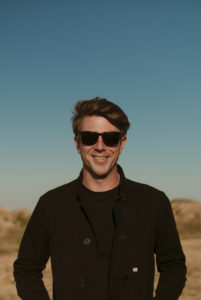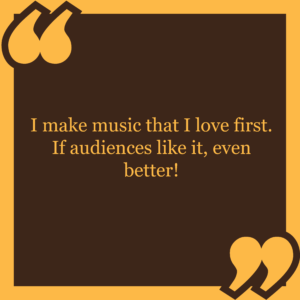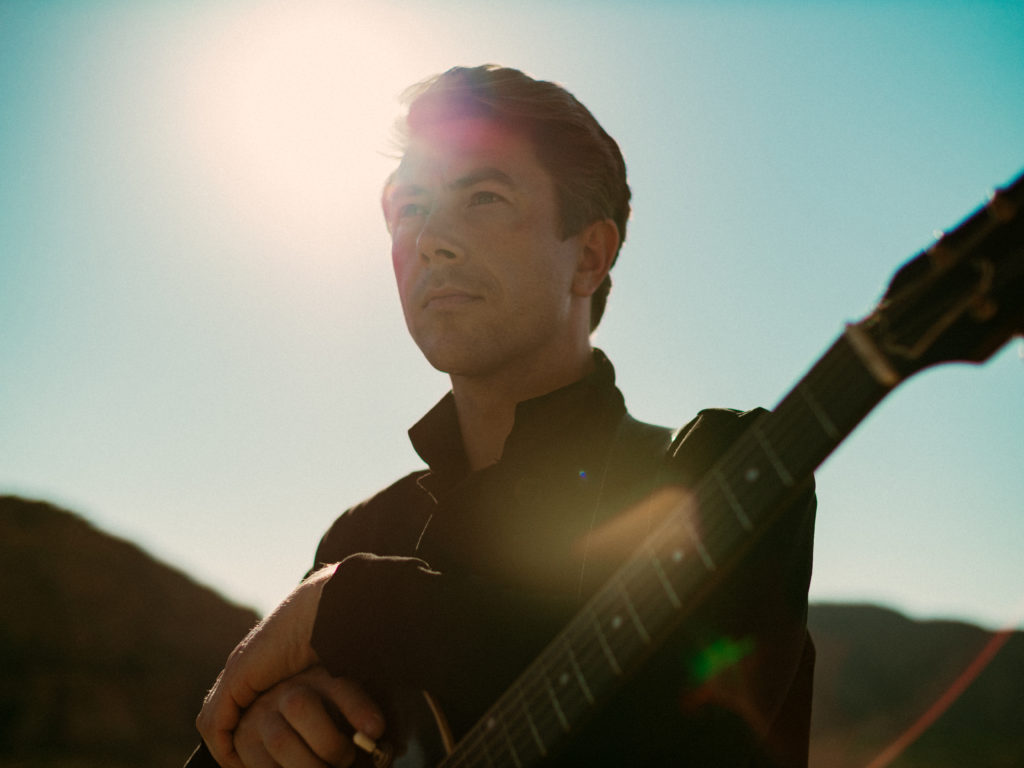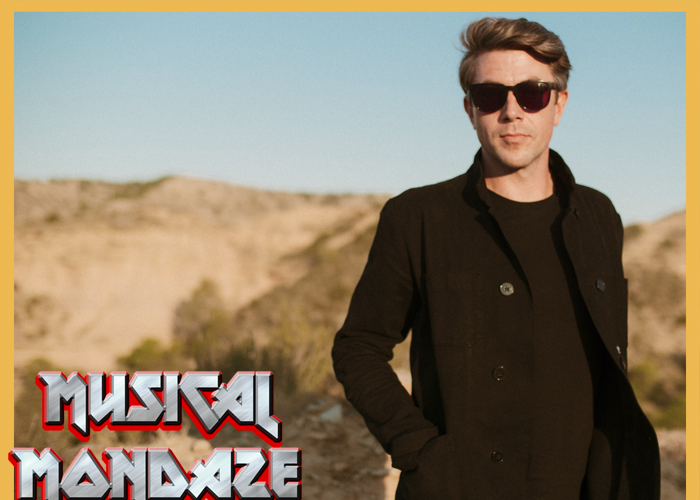
Spending more than a decade in New Orleans, a city known for being a rich musical melting pop of genres and styles, gave singer/songwriter Luke Winslow-King a new perspective on his relationship with his audience. The Big Easy’s communal creative scene scene instilled in him the responsibility of an artist to be entertaining, authenticate and original, three qualities that are instantly apparent when listening to his latest album, “Blue Mesa,” due May 11 from Bloodshot Records.
We recently sat down with Winslow-King to discuss the importance of artistic exploration, why he feels more confident in his craft than ever before, and the reason he hopes others will find a meaningful message in the songs that have impacted his own life.
TrunkSpace: You recently moved back to Cadillac, MI after spending more than a decade in New Orleans. New Orleans is the kind of city than can leave its mark on people. Where has the city influenced your music and creative POV the most?
Winslow-King: I would say New Orleans has influenced my music a lot with the style, flair, and swagger that the culture there has to offer. I was really fortunate to learn from and play with some of the greats there including: John Boutte, Little Freddy King, Washboard Chaz, and Roberto Luti. You do gather an interesting artist’s perspective performing in New Orleans. Music becomes something that is shared within the community. Something that’s free, that’s in the air. I feel living in New Orleans gave me a sense of responsibility towards my audience. To be entertaining, authentic, and original.
TrunkSpace: Your new album “Blue Mesa” is a really beautiful blend of so many various genres. So often we hear about actors not wanting to get pigeonholed into any one genre of film or television, but can the same be said for a songwriter? Is it important for you to be able to write from a space of creative diversity?
Winslow-King: Yes, for me personally it’s very important to have the freedom to explore different genres, sounds, and traditions. Over my career I’ve been careful to not get pigeonholed as any one kind of artist, but also not to be known for being a “mixed bag” artist who doesn’t know the depths of any one tradition. I feel like all of the sounds explored on the album are ones that I’ve lived with. I feel justified in my abilities to perform within them.
TrunkSpace: What do you think “Blue Mesa” says about you as an artist and do you believe that it’s reflective of a continuous journey of discovering your voice as a songwriter?
Winslow-King: It’s definitely a stop along the way in my journey as an artist. I am continually exploring and discovering my voice as a singer and songwriter. I feel that “Blue Mesa” is definitely an arrival at a new height. I feel more confident in my writing and singing than I ever have before. I feel like my band is hitting on all cylinders and supporting the songs better than ever as well. I’m proud of it and am looking forward to seeing how audiences respond to the entire album.
TrunkSpace: If you could sit down and have a conversation with your 16-year-old self, would he be happy with the artist you have become today? Would he be surprised?
Winslow-King: I think so. The music I’m playing now is surprisingly similar to the music I was making when I was 16. I’ve gone on different tangents in my musical life exploring jazz, folk, dixieland and songwriting. Now I have come full circle in away. I was performing at clubs, festivals, and talent shows with the Winslow-King Blues Band in the mid to late ’90s playing blues rock covers. The only difference is that now I’m performing all original songs and have a lot more experience behind me. At that age, I just was excited about performing. I didn’t have aspirations of being a career musician. I think if 16-year-old me could see me now, he would be pleasantly surprised and excited. In the same way, I’m looking forward and encouraging 50-year-old me down the path.
TrunkSpace: The process of recording the album was a bit of a worldwide adventure. How important was that to you in making sure that the vibe and focus of the album supported the vision you had for it? Would the album have been the same had you recorded it at a single location here in the States?
Winslow-King: I don’t think the location of recording really makes that much difference. It’s more about the songs in the mental headspace of the performers. We have recorded some of my prior albums in Europe as well. “Blue Mesa” was recorded in the fortress village of Lari, nestled in the mountains of Tuscany. The setting was ideal and relaxing which had my band and I in a good headspace to relax and have fun with the songs. When you get to the studio, the songs and sounds have already been developed. I’ve found it’s best, once the red light is on, to sit back and enjoy the ride.
TrunkSpace: There are some amazing guest musicians on the album, including Roberto Luti and Chris Davis. Are you someone who finds creative inspiration in the creativity of others? Does being around those other musicians make you a better musician?
Winslow-King: Definitely, Roberto has been an inspiration, partner and maestro for more than a decade. He has greatly influenced my slide guitar playing and approach to music generally. Chris Davis, and bassist Christian Carpenter, really went the extra mile on this album to play simple and articulated parts. They really elevated the songs by playing selflessly and being dedicated to the greater sound.

TrunkSpace: You have numerous records under your belt now. Has the songwriting process changed for you at all from those early days when you first began your career to where you are today with “Blue Mesa?”
Winslow-King: Yes, “Blue Mesa” is my sixth album. The biggest change since the early albums is that song craft has become more a part of my daily life. I used to assign myself homework and feel a nagging responsibility to sit down and produce more. These days song writing is a part of daily life. I just try to be ready when lightning strikes. To be a conduit. To pay attention to the sounds, phrases, emotions and ideas that are in the ether. I’m just trying to bring these down to solid ground and make songs that people can relate to and see themselves in, songs that people feel comfortable with. This approach has proved much more fruitful for me.
TrunkSpace: Is it possible to overthink a song? Can a songwriter tinker so much that the creative spark that first made a song great ends up dimming a bit?
Winslow-King: Definitely. The same can be true with performance in production. I think that proves a true maturity in an artist. To be sensitive to that balance. You definitely have to have a certain technical proficiency whether it be instrumentation, production, or songwriting. That has to be balanced with the human visceral nature of music. Roberto is kind of our spirit guide in the band, helping find this balance.
TrunkSpace: Where are you hardest on yourself as an artist?
Winslow-King: I would say in the department of authenticity. I have very little tolerance for anything less. I have to be true to myself on stage and when I’m writing, or else I just can’t do it. Not necessarily being authentic to a certain style, culture, or genre so much as being authentic to my own true self; my own likes and honest tendencies. I make music that I love first. If audiences like it, even better!
TrunkSpace: When all is said and done and you hang up your guitar for good, what do you hope you’re remembered for? What do you want your legacy as a songwriter to be?
Winslow-King: I guess I want to be remembered for songs that made a difference in peoples lives. Not necessarily that saved the world, but songs that were there for people in times of need. I’ve written a few songs that I feel an obligation to live up to. Those songs have made a difference in my own life and I hope others find them useful as well.
“Blue Mesa” is available May 11 from Bloodshot Records.


